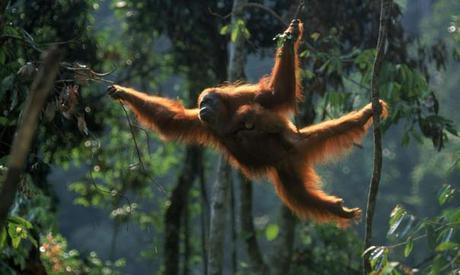Palm oil is an ingredient of nearly 50% of our consumptive goods. Usually, the packaging would say that the product contains vegetable oil masking the true story behind this ingredient.
About a year ago, I saw a Dutch documentary on the social impact of palm oil in the Malaysian state of Sarawak, where for quite some years now IOI Group has run its palm oil plantations. They yield about 6 tonnes per hectare per year and are the world’s most efficient plantation company. To acquire farmland, they bought out local farmers under false pretenses or simply chased them off their lands. Dutch Unilever and the port of Rotterdam are huge players in the palm oil trade.

Using pesticides like paraquat, misinforming its employees on the use of this pesticide, and dumping it in small rivers and lakes, effectively polluting the environment and its inhabitants.
Even though the local Supreme Court had ruled that IOI had to leave Sarawak, the company just stayed put. They were aided by a corrupted government and
Companies like Unilever and Albert Heijn founded a hallmark for sustainable palm oil, called the Round Table of Sustainable Palm Oil (RSPO). The plantations have to be checked, and receive a certificate when all is well. Unilever and Albert Heijn only buy products containing palm oil of certified plantations. It is suprising, however, that some IOI plantations were able to receive said certificate.
Oxfam Novib, a Dutch affiliate of the international organisation Oxfam, is part of the RSPO’s board. However, IOI Group was a co-founder and fellow board member at RSPO. Unilever had even already stated that they wouldn’t amerce IOI!
This evening I was confronted with another image: orangutans kept and taken care of by Dr Ian Singleton. They are a critically endangered species, with approximately 7,000 left on Sumatra (the Sumatran orangutan) and still decreasing (see the IUCN Red List)

© naturepl.com / Anup Shah / WWF-Canon
In about 20 years time, one-third of Sumatra’s rain forest has been cut down in favour of paper and palm oil plantations. This also means that one-third of the Sumatra orangutans’ habitat has been destroyed. Besides illegal capturing and trade, and the shooting of these highly intelligent great apes, destruction of their habitat put the species in great jeopardy.
If these arguments are still not enough for you, the public, to become more aware of the existence and use of palm oil in our products, I’ll add that palm oil isn’t even all that good for your health.
The World Health Organization recommend caution when consuming palm oil. They state that there is convincing evidence of its contribution to an increased risk at cardiovascular diseases. Furthermore, an analysis of 23 countries has found that there was a rise in ischemic heart disease deaths for each kilogram of palm oil added to the diet annually.
It would be such a waste to lose such an incredible place on earth and be responsible for the disappearance of the orangutan. So, try to be aware of the products you consume. Don’t merely consume with your stomach and your eyes. Consume with your mind and your heart.

